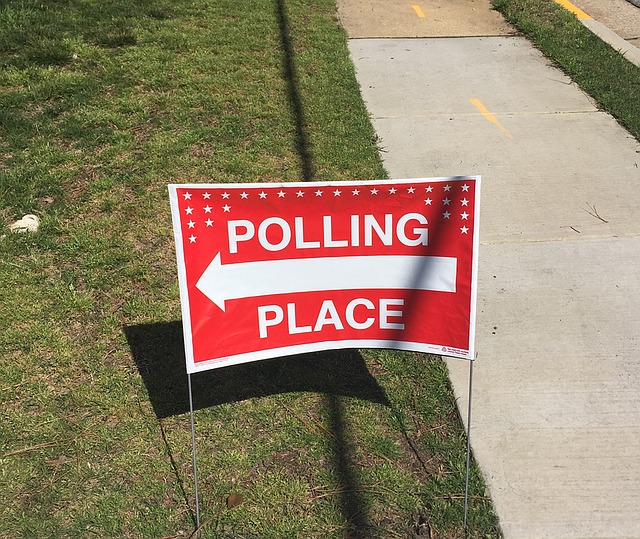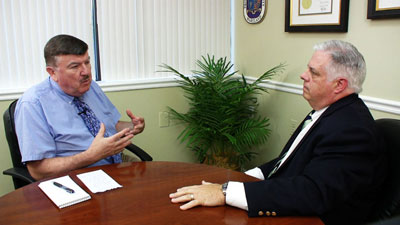This an updated version of a column that runs in the July issue of The Business Monthly covering Howard and Anne Arundel counties.
Mail-in balloting is already underway for the July 19 primary and early voting in person begins Thursday, July 7. But for independent voters – called “unaffiliated” in state law – and members of third parties – people who choose not to register as a Democrat or Republican — there is not much reason to vote.
Maryland is one of 14 states that has what is known as a “closed primary.” In 36 other states – some of which have no party registration at all – any eligible voter, including independents, can vote in partisan primaries in some fashion.
But in Maryland, these independent folks can only vote in non-partisan races – basically for school board. That’s 60,000 registered voters in Howard County, 104,000 in Anne Arundel County, and almost 170,000 people in Montgomery County – over 25% of registered voters in each county.
As registered Democrats and Republicans are choosing candidates for executive, county council and state legislature in a primary election that is paid for by all taxpayers, independents have no say. And in a county like Montgomery, where every single elected official is a Democrat, there’s no way of telling how many voters register “Democrat” just to have some say in who governs or represents them.
As we have increasingly seen, Democratic primary voters have moved left, and Republican voters have become more conservative or Trumpian. Independents wouldn’t necessarily move either party to the center – research has shown that even so called “independent” voters lean to one side or other — but open primaries allow voters to influence who might govern them.
Pernicious primaries for judges
The closed primary is particularly pernicious when it comes to contested races for circuit court judge, as we have again this year in Howard County.
Like all judges in Maryland, judges for the circuit courts are appointed by the governor after candidates go through an extensive vetting process by nominating commissions that get input from bar associations, including ethnic groupings, even Maryland’s LGBTQ Bar Association with its 115 members.
Once they’re appointed, circuit court judges, who oversee jury trials among other matters, must run for election in which any lawyer can challenge them for their seat on the bench. These judges serve for 15 years, so the long-term administration of justice is at stake.
Here’s where the closed primary really deprives independents of a voice.
Regardless of their own partisan affiliation, the appointed judges and their challengers are put on the ballot in both the Democratic primary and the Republican primary. That’s it. No say for independents.
In Anne Arundel County, former Del. Michael Malone, now a newbie circuit court judge, must have been relieved when no lawyer filed to run against him. He will be able to serve 15 years at a current annual salary of $174,433. And after judges are forced to retire at 70 years old, they can continue to serve as senior judges, picking up both a pension and part-time pro-rated salary.
Challenging Judge Stephanie Porter
Circuit Court Judge Stephanie Porter in Howard County was not so lucky. A former Howard County magistrate and 14-year prosecutor in Baltimore County, Porter is being challenged by Alicia Altamirano, an attorney with extensive experience in criminal defense and family law.
In a brief conversation at a Democratic event for a book signing by Rep. Jamie Raskin April 2, Altamirano told me that she had not applied for the vacancy because a person like her was unlikely to be appointed by the governor.
Instead, on her campaign website, Altamirano says: “I witnessed, in our judicial system, unconscious facets of bias while representing people from all walks of life in various counties of Maryland, and fairness will be achieved with me as judge because I understand the need for progressive approaches and restorative justice.
My legal experience defending the marginalized and underrepresented is the training and spirit only I can offer the bench and our community.”
In case this is too subtle, the website also describes her as “The Democratic Choice” courtesy of the endorsement from the Columbia Democratic Club and shows pictures of Altamirano with Democratic elected officials such as the late Rep. Elijah Cummings, Howard County Executive Calvin Ball and others. And there is a Spanish-language video interviewing her from Somos Baltimore Latino media.
“I am the only Democrat in the race,” Altamirano said on Twitter.

Alicia Altamirano, second from left, and her family. Campaign website photo
Partisan and racial politics
This reflects a trend to make these judicial races more partisan and ethnic. In Howard County’s election two years ago, Quincy Coleman, a Black Democrat with experience in criminal defense, beat Circuit Court Judge John Kuchno in the general election. Kuchno was a Republican appointed by Gov. Larry Hogan but also endorsed by a number of Democratic officials, including Attorneys General Brian Frosh and Doug Gansler for whom Kuchno worked. Coleman beat several other Democrats in the Democratic primary. Kuchno had won the Republican primary.
Judge Porter’s campaign website counters Altamirano’s message in words and photos. Her home page has a picture of her with her Black husband Ed and her two daughters obviously a product of this interracial marriage. She also posts photos that emphasize diversity, including a casual photo with Calvin Ball.

Judge Stephanie Porter and her family.
Two campaign mailers from Porter emphasize the same points with family photos – not typical a judicial campaign. One mailer quotes extensively from an endorsement by the African American Coalition of Howard County, noting her “close-knit interracial family with two Black daughters.”
“In 1997 while searching for a place to call home, my husband Ed & I chose Columbia due to the desire to establish our family in a diverse and inclusive community,” Porter says on her website. “My desire to continue to serve our community lies in my commitment that all residents deserve an experienced judge who is committed to listening to cases fairly, without partiality or prejudice. Thus, I have chosen throughout my 22 years as a public servant to be independent and unaffiliated with any party.”
If that’s still the case, it’s too bad Porter won’t be able to vote for herself in the primary.
There have been numerous attempts in the legislature to change this system which allows any lawyer to challenge the sitting judges appointed by the governor after an extensive interview process. Change is opposed by an odd coalition of Black lawmakers and Republicans, who both feel they have not been treated fairly by past governors. The appointments by Hogan have been both politically and racially diverse, but no matter.
The legislature’s failure to change the process to at least a non-partisan election for judges unfairly excludes 60,000 independent voters in Howard County, as does the closed primary overall. The same goes for the 170,000 unaffiliated and third-party voters in Montgomery County, where Marilyn Pierre, a Black attorney, is making another challenge to a panel of four judges appointed by Hogan, including a Latino former prosecutor, a former Democratic delegate and a longtime public defender.
With all the squawking about voter suppression and threats to voting rights in other states, Maryland’s Democratic legislature might look closer to home and cure its disenfranchisement of over 900,000 voters who choose not to be part of the two-party duopoly.







As another unaffiliated registered voter, I have to ask the same question: Is there any interest in the Maryland legislature to correct this injustice? This disenfranchisement of so many Maryland voters needs to end. Unaffiliated voters need to write to their representatives in the legislature to find out why.
As an unaffiliated registered voter, I agree with you 100%: “With all the squawking about voter suppression and threats to voting rights in other states, Maryland’s Democratic legislature might look closer to home and cure its disenfranchisement of over 900,000 voters who choose not to be part of the two-party duopoly.” Is there any interest in Maryland legislature to correct this injustice?